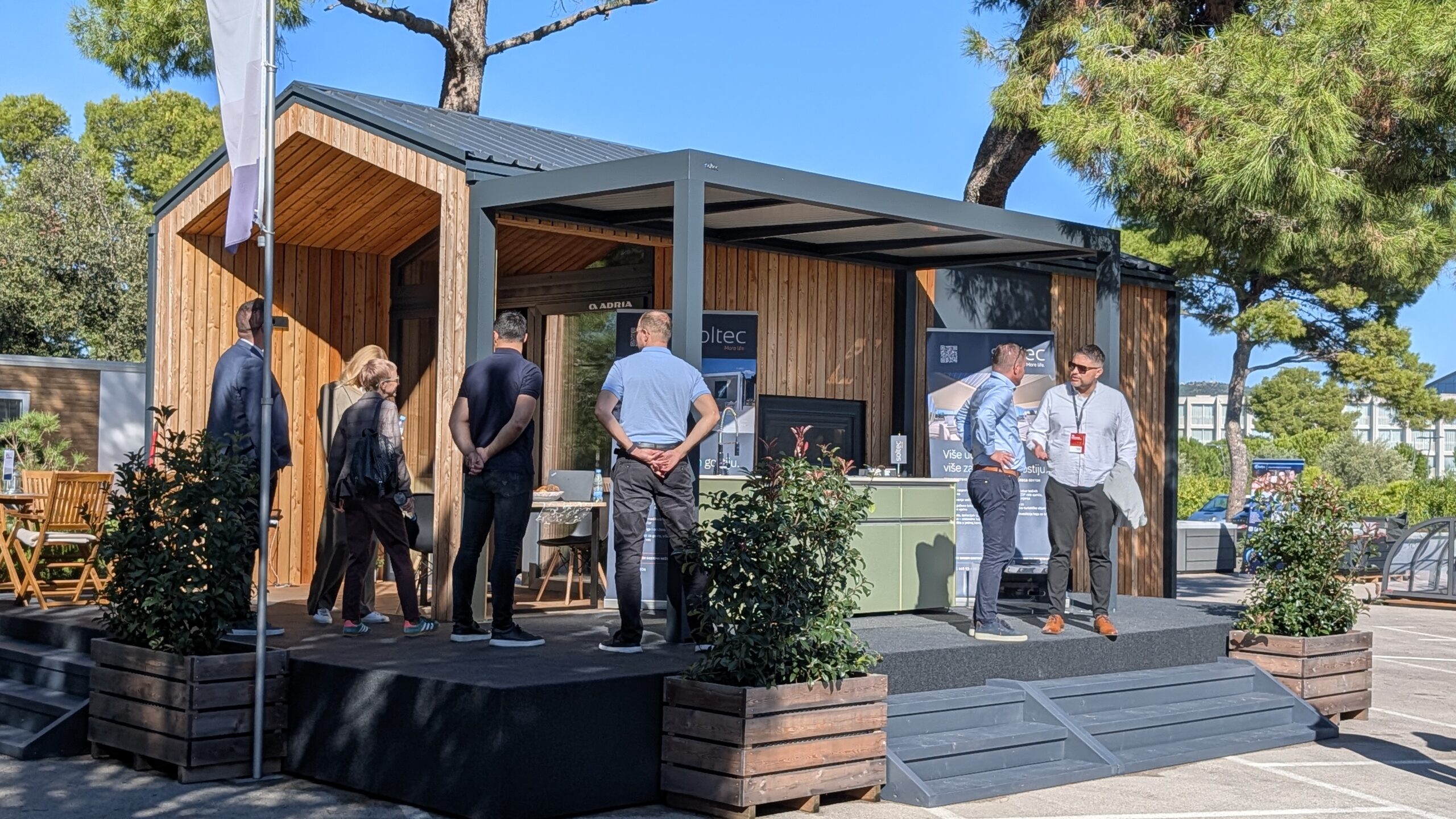The 19th Congress of Croatian Camping in Šibenik, gathered industry experts and innovators today to discuss how artificial intelligence, modernization, and design are shaping the future of campsites.
Organized by the Croatian Camping Association, the annual event highlighted practical strategies for digital transformation, sustainability, and enhanced guest experiences across Europe’s outdoor hospitality sector.
On day 3, artificial intelligence (AI) took center stage as Goran Mrvoš of Infosit discussed how generative AI can address real business challenges faced by campsites. From automating guest communication to generating personalized offers, Mrvoš explained that “artificial intelligence is no longer science fiction – it has become a practical tool for solving everyday business problems.”
His session explored the concept of “Agentic AI,” focusing on intelligent systems that autonomously handle operational tasks. Such tools can reduce repetitive workloads, allowing campsite teams to prioritize guest engagement and improve service efficiency.
Following the technology-focused session, Lucija Kačan and Mauro Justić of Aminess presented the transformation of Aminess Style Camping Atea Resort, one of the oldest campsites on the island of Krk. The presentation showcased the property’s evolution into a five-star destination centered on design, comfort, and premium experiences.
Kačan, who has worked in tourism and brand marketing, emphasized the value of innovation and trend awareness in tourism.
Attendees also heard from Boris Vukić of Zaton Holiday Resort, who presented the development of a new pool complex designed to elevate the resort’s amenities. The project aims to enhance the guest experience while strengthening the resort’s position as a leading coastal camping destination.
Shifting to the regulatory side of operations, Almira Hernaut of ProptiSphere explained the upcoming Fiscalization 2.0 framework, which introduces mandatory e-invoicing for all business transactions. Hernaut detailed the issuance of invoices in structured XML format and fiscalization of B2B, B2C, and B2G transactions, including tips.
Her session outlined key deadlines, technical requirements, and actionable guidance to help campground and resort operators prepare for implementation. Hernaut, who specializes in digital transformation, is known for simplifying complex compliance topics into clear business processes.
Design and sustainability also took the spotlight in a presentation by Višen Slamar of Tissa & Partners, who discussed how campsites of the future can merge nature, technology, and well-being. Slamar highlighted the importance of collaboration among designers, investors, and operators in creating adaptable, guest-oriented environments.
He describes modern campsite design as a balance between functionality and aesthetics, noting that “change and uncertainty are the only constants.” His presentation underscores flexibility and responsibility as essential elements in developing sustainable outdoor spaces.
Tissa & Partners, known for integrating architecture, engineering, and interior design, has delivered numerous projects that emphasize environmental awareness and experiential value.
A roundtable featuring Brian Searl of Insider Perks, Georg Giner of Ferienparadies Natterer See, Kristian Korunić of Evoluta, Višen Slamar of Tissa, and Gianfranco Vitali of Florenz Open Air Resort brought an international perspective. The discussion explored emerging trends and visions for campsites across Europe and beyond, with a focus on innovation and evolving guest preferences.
The event concluded with a ceremony recognizing long-term partners and sponsors who have contributed to the growth of the Croatian camping sector. Awards such as Naj Kamp Adria 2025 and Croatia’s Best Campsites & OK Mini Camps 2026 honored outstanding achievements and industry excellence.
Featured image by Brian Searl/Modern Campground


